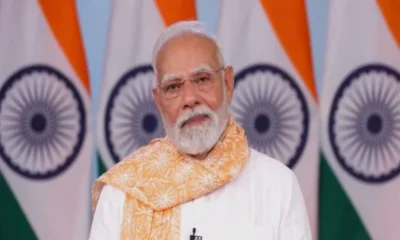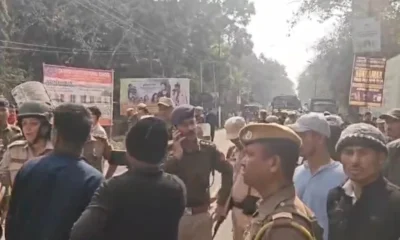India News
NRC deadline: Centre asks for extending July 31 deadline, wants reverification of claims

India News
Security tightened across Delhi metro stations after bomb threat emails
Delhi is on high alert after bomb threat emails targeted metro stations, the Red Fort and the Assembly. Authorities confirmed the threats were hoaxes but tightened security as a precaution.
India News
JNU protest turns violent as Left and Right student groups trade charges
A late-night protest at JNU turned violent as Left and ABVP student groups accused each other of stone-throwing and attacks near the East Gate.
India News
World praised India’s AI potential at AI Impact Summit, says PM Modi
PM Modi said the world praised India’s AI potential at the AI Impact Summit 2026, where 89 countries endorsed the New Delhi Declaration on artificial intelligence.
-

 LATEST SPORTS NEWS17 hours ago
LATEST SPORTS NEWS17 hours agoICC Men’s T20 World Cup 2026: South Africa outclass India with smart slower-ball strategy in Super 8
-

 India News18 hours ago
India News18 hours agoDevendra Fadnavis seeks CBI probe into Ajit Pawar plane crash
-

 India News17 hours ago
India News17 hours agoJNU protest turns violent as Left and Right student groups trade charges
-

 India News17 hours ago
India News17 hours agoWorld praised India’s AI potential at AI Impact Summit, says PM Modi
-

 Latest world news11 hours ago
Latest world news11 hours agoBangladesh president Shahabuddin accuses Yunus of conspiracy to unseat him
-

 India News9 hours ago
India News9 hours agoSecurity tightened across Delhi metro stations after bomb threat emails
















